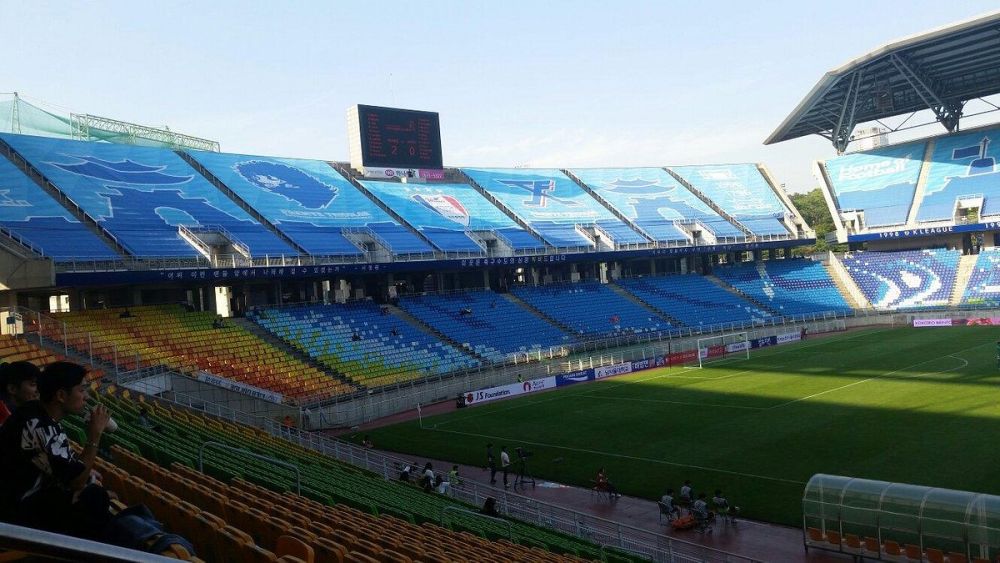

Located in the heart of Suwon, South Korea, the Suwon World Cup Stadium, also popularly known as the Big Bird Stadium, is a multifunctional facility that has become a hub for football fans and tourists alike. Opened in May 2001, the stadium was purpose-built for the 2002 FIFA World Cup which was co-hosted by South Korea and Japan. Designed to resemble a traditional Korean kite called Yeonnalligi, the stadium's innovative architecture quickly became an iconic symbol of the city.
The history of tourism at the Suwon World Cup Stadium is intrinsically linked to the 2002 World Cup. The success of the global event placed Suwon on the map for international tourists. Beyond sports, the stadium offers guided tours, showcasing behind-the-scenes areas such as the locker rooms, VIP lounges, and the pitch, providing a comprehensive view for both football fans and curious visitors.
Post the World Cup, the stadium remained an anchor for sports events, concerts, and cultural festivities, drawing crowds beyond just football enthusiasts. The inclusion of stadium tours and sports-themed events has made the venue an attraction for family excursions, educational trips, and international visitors looking to experience a piece of South Korea's modern sports heritage.
The Suwon World Cup Stadium also hosts the Suwon Information Science Festival, which is one of the largest IT events in Korea, introducing tourism linked with technology. Furthermore, the stadium precinct contains a variety of restaurants, cafes, and recreational facilities which has expanded visitor engagement beyond traditional sports events.
As South Korea's tourism strategies adapt to global trends, Suwon World Cup Stadium remains a critical player in promoting sports tourism. Encouraging active lifestyles, it supports amateur football leagues and social sports events. Additionally, the integration of K-pop concerts and other entertainment showcases aligns with the Hallyu wave, South Korea's global cultural popularity surge.
Currently, one of the latest trends is the development of eSports arenas and events, reflecting the booming market for gaming in South Korea, and Suwon World Cup Stadium is poised to further engage with these types of digital and cultural events.
The commitment to sustainability and environmental conservation is also becoming integral, with the stadium moving towards implementing more eco-friendly practices. These efforts contribute to a contemporary image of Suwon as a forward-thinking city balancing modern sports, tourism, and Korean tradition.
If you're planning a visit to Suwon World Cup Stadium, take the opportunity to explore the surrounding city as well. Suwon is famous for its UNESCO World Heritage site, the Hwaseong Fortress, and its unique traditional culture. Local culinary specialties, such as Suwon galbi (Korean barbecue ribs), offer a taste of the region's gastronomic delights.
Whether you're a football fan, cultural enthusiast or just an adventurous traveler, the Suwon World Cup Stadium and the city's rich heritage stand ready to offer an unforgettable South Korean experience.